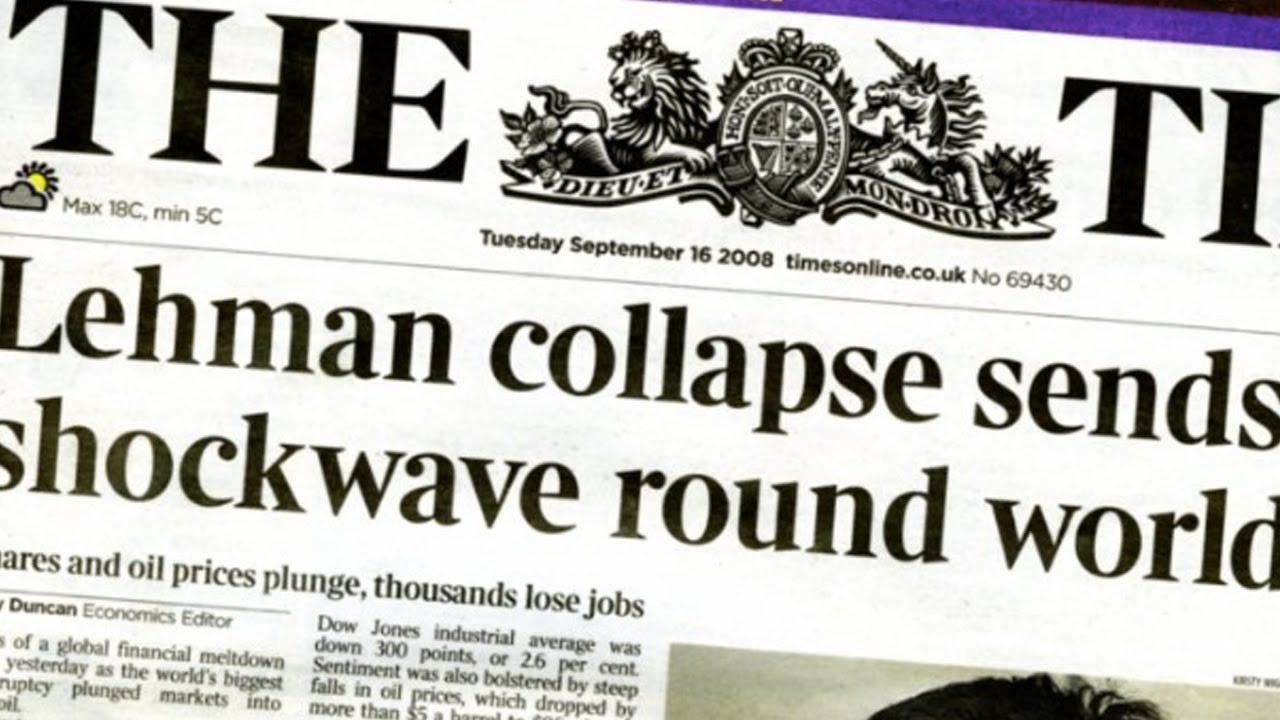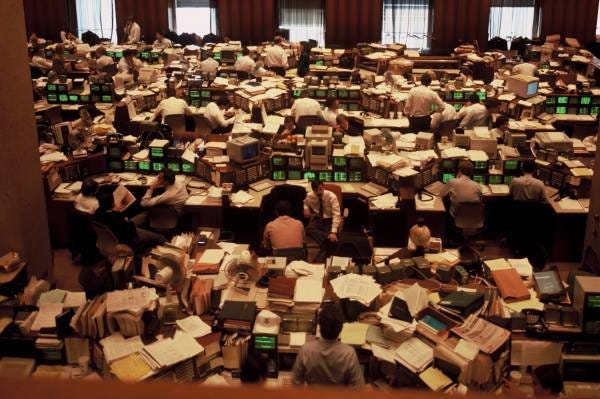It’s always obvious in hindsight.
From COVID to the 2008 financial crash: How could it not have happened? People muse.
It’s much easier to explain in hindsight, but they are right about one thing: the writing was very much on the wall. The tricky part was knowing where to look.
Welcome new readers! If you’re reading this but haven’t subscribed you can subscribe here:
Obvious
On September 15th, 2008, the world changed.
The US investment bank Lehman Brothers collapsed. It marked the climax of the 07-08 financial crisis. The system had imploded.
In hindsight it was obvious. The greed of Wall Street had fuelled reckless behaviour. This, in turn, built a ticking time bomb. In 2007 that bomb started going off.
One could trace the whole crash back to a single moment. 27 years earlier.
In 1981 John Gutfreund sold Salomon Brothers. Up until that point Salomon Brothers had been a partnership. The same was true of Wall Street’s other money managers. This seemed to work. The Partners kept order. But then Gutfreund sold out.
For the first time, the shareholders were no longer in the building. They were hundreds of miles away. The incentives changed.
Repackaging the Crap
It doesn’t sound significant but that change of incentives changed everything. All notion of longevity went out of the window. Salomon’s was now judged on their revenue growth. Bonuses .
What happened next was an explosive six years of growth. Chasing the money Salomon’s traders created a vast array of new financial products. All notion of what was right and sustainable went out the window. If they could sell it, it got sold.
That, right there on the Salomon’s trading floor, planted the seeds of disaster. Traders figured out how to take mortgages, from the American people, and sell them on. They did these by packaging them together as bonds. Over the next three decades these financial products got out of control. As other firms broke their partnerships and pilled in, revenues on Wall Street boomed. It became a feeding frenzy.
Now lenders could sell the mortgages they issued. No longer were they incentivised to focus on people who could pay it back. It became a numbers game. New products enabled them to lend to people who had no hope of paying them back. As soon as they signed the papers the borrower would sell them to Wall Street for a tidy profit.
Wall Street would repackage this crap and fool the rating agencies into approving it. They'd then and ship it out to the dumb money. Over time the repackaging got so complex that Wall Street itself lost track. They began buying their own time bombs.
Billions in hopeless loans flowed into the system, and onto the books of the “smart money”. It was just a matter of time until disaster struck.
Don’t Hate the Player
There’s a wonderful Charlie Munger saying:
“Show me the incentives, I’ll show you the outcome.”
It’s so true. The world around us is full of complex systems. It’s the players within the system that dictate the outcomes. And what drives those players? Their own self interest.
Can you really blame the traders of Wall Street? I'm don’t. We’re all a product of our environment. They just happened to be in an unhealthy game.
The same laws apply to startups. They’re won or lost on incentives. From the team, to the suppliers, to the customers. Is the system designed to encourage the right behaviour? Or is there a ticking time bomb tucked neatly away. It’s an interesting thought experiment.
Credit to the two books below for the ideas in this post.
My Week in Books📚
Liar’s Poker by Michael Lewis
So good. Lewis wrote this off the back of 5 years as a graduate investment banker at Salomon Brothers in the 80s. It’s a hilarious exposé about the reckless culture. It all came crashing down. Or so he thought…
The Big Short by Michael Lewis
Even better. SUCH a wonderful book.
The crash Lewis predicted in 1989 did not come. Instead the bad behaviour compound for another 18 years. In 2007 the house of cards came tumbling down. This book follows the people who saw it coming. Completely brilliant. He wrote this 21 years after Liar’s Poker.
Thank you Rupert Leigh for recommending both of these.
I’ll be updating the books I’ve read this year here. Any recommendations? Let me know!
What else ❓
Help shape the future of Unplugged by filling out this survey. (it takes 1 min)
I will be forever in your debt. Much appreciated.
A Final Thought 💡
“Never, ever, think about something else when you should be thinking about the power of incentives.”
– Charlie Munger





